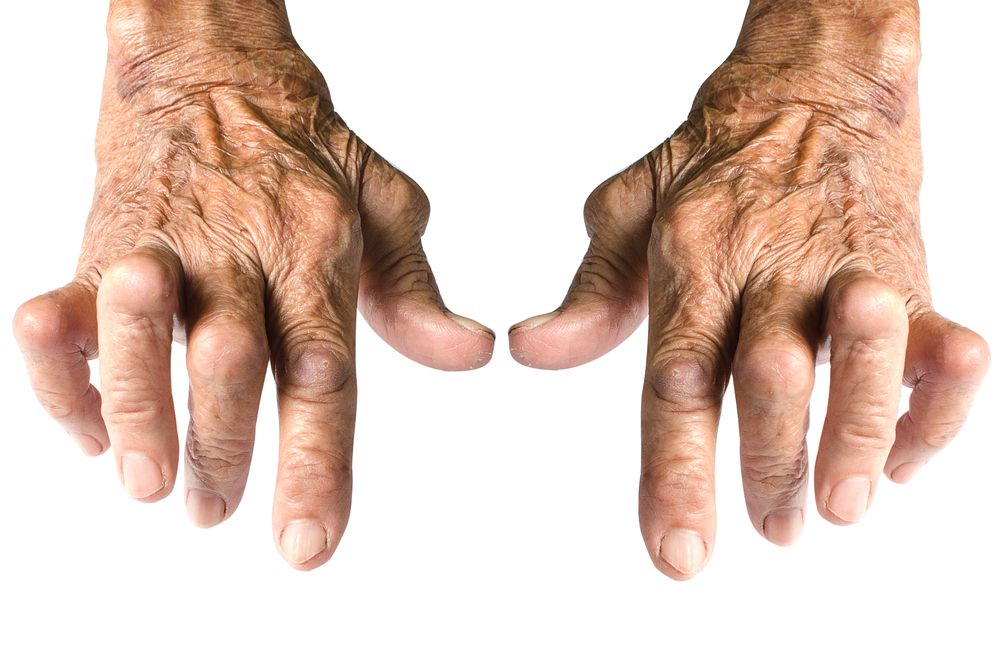JAK1 Filgotinib Promising for Rheumatoid Arthritis
The JAK1 inhibitor filgotinib has been shown to be effective in rheumatoid arthritis patients who failed previous treatment with one or more biologic DMARD.
(©ChaowalitSeeneha,Shutterstock.com)

The JAK1 inhibitor filgotinib has been shown to be effective in rheumatoid arthritis patients who failed previous treatment with one or more biologic DMARD.
The study, which was published in the July 23 issue of JAMA, included 448 patients who were treated with either 100 mg or 200 mg daily for 12 weeks.
The treatment "resulted in a significantly greater proportion achieving a clinical response (ACR20) at week 12," as compared to patients treated wiht placebo, wrote researchers who were led by Mark C. Genovese, M.D., of Stanford University School of Medicine.
The patients in the trial, all with active, refractive rheumatoid arthritis were previously treated with a TNF inhibitor, which is customarily considered first-line therapy, however, the treatment can be inneffective in some patients and in others, the development of adverse events may warrant switching to another treatment. The American College of Rheumatology treatment guidelines for rheumatoid arthritis (2015) recommends "triple traditional DMARD therapy, addition or substitution with tumor necrosis factor biologic, nonbiologic, or oral JAK inhibitor in cases of inadequate response to conventional DMARD monotherapy (most often methotrexate)," wrote Jasvinder A. Singh, MBBS, MPH, in an editorial that was publised with the study.
Previously, a phase II clinical trial of rheumatoid arthritis patients showed that filgotinib was effective as both monotherapy and as combination treatment with methotrexate.
This current trial included 448 patients (mean age, 56 years, 360 women) and of these, 105 had previously tried at least three biologic DMARDs and 381 completed the study. At week 12, 66 percent of patients receiving 100 or 200 mg filgotinib achieved ACR20 response as compared to 31.1 percent of the placebo group.
The most common adverse events were nasopharyngitis in 10 percent of patients for 200 mg filgotinib; and, headache, nasopharyngitis, and upper respiratory infection occuring in 5.9 percent of patients receiving 100 mg filgotinib. There were four uncomplicated herpes zoster cases, one major cardiovascular event and one retinal vein occlusion.
Other JAK inhibitors-upadacitinib, baricitinib and tofacitinib-have been tested in phase III trials (upadacitinib, baricitinib and tofacitinib). By week 12, 65 percent of patients treated with upadacitinib achieved ACR 20 as compared to 55 percent of patients treated with 4 mg baricitinib; and, 42 percent of patients treated with 5 mg tofacitinib with treatment responses maintained or improved through 24 weeks.
As a JAK1 inhibitor, filgotinib is a promising novel treatment for rheumatoid arthritis. There are currently two other JAK inhibitors on the market in the U.S.: Tofacitinib (JAK1, JAK3 and JAK2) and baricitinib JAK1 and JAK2).
"Serious adverse events are a concern with JAK inhibitor drugs," Dr. Singh wrote. "The two currently approved JAK inhibitor drugs for RA, tofacitinib and baricitinib, have black box warnings for serious infections and malignancies. Baricitinib carries a further caution of thrombosis. Many hypotheses have emerged regarding whether and how the inhibition of JAK subtypes may impart different risks to these drugs, or differences in relative efficacy, but these issues remain unresolved."
Future long-term efficacy and safety studies are needed to confirm these results, the authors wrote.
REFERENCE
- Jasvinder A. Singh, MBBS, MPH. "Filgotinib, a JAK1 Inhibitor, for Treatment-Resistant Rheumatoid Arthritis," JAMA. 2019;322(4):309-311. doi:10.1001/jama.2019.9056
- Mark C. Genovese, MD; Kenneth Kalunian, MD; Jacques-Eric Gottenberg, MD, PhD; et al. "Effect of Filgotinib vs Placebo on Clinical Response in Patients With Moderate to Severe Rheumatoid Arthritis Refractory to Disease-Modifying Antirheumatic Drug Therapy," JAMA. 2019;322(4):315-325. doi:10.1001/jama.2019.9055